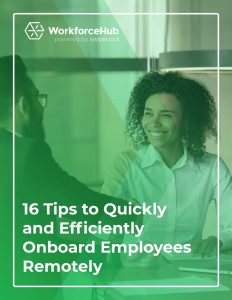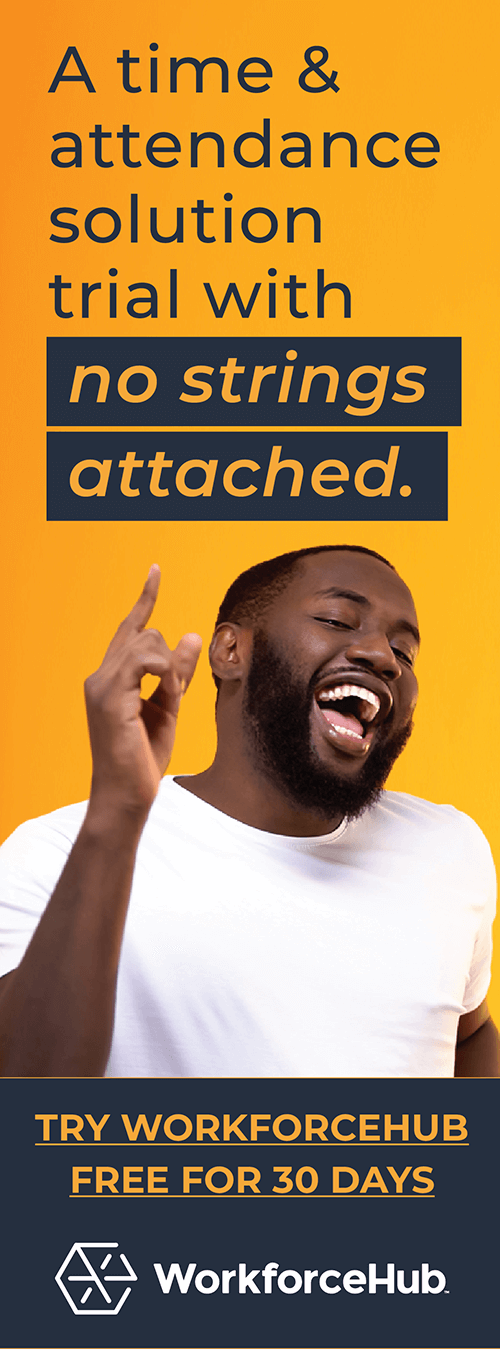Employee Benefits Enrollment Software: Boost ROI This Year

Does your HR toolkit contain employee benefits enrollment software? If not, you aren’t getting the benefits of your benefits. (Pun very much intended.)
You choose benefits packages carefully because you want to attract high performers. After compensation, benefits are the second most important consideration for job seekers.
Benefits and wages also account for the biggest chunk of operating expenses. If employees can’t easily manage them, it reduces your benefits ROI in several ways:
- Poor employee engagement
- Reduced productivity
- Increased employee turnover
- Poor employer brand
Benefits Management: 4 Key Findings
- Chestnut Global Partners found that 80 percent of employees do not open benefits information materials and of those who do, 49 percent don’t understand the information available to them.
- Only 19% of organizations believe that their employees have a high level of understanding of their benefits. (International Foundation of Employee Benefits)
- Less than 7% of employees in North American fully utilize the benefits offered by their employer. (Chestnut Global Partners)
- More than one-third (37 percent) of employees indicate that their employer or benefits company provides no education or advice on benefits. (Employee Benefits Research Institute)
The onboarding-engagement connection
Good onboarding and a hassle-free benefits enrollment process creates new hire engagement. Engaged new hires start contributing sooner. Early employee engagement drives employee loyalty, which reduces turnover. Turnover is painfully expensive–especially for small businesses. Consider the following scenario…
How to provide a terrible onboarding process
You extend a job offer to a highly-qualified candidate, offering a good salary and generous benefits. When the new hire shows up to work on day one, you hand them a stack of papers. It contains tax forms, a direct deposit signup for payroll, the employee handbook, and several health plan brochures from all the carriers.
The new hire quickly turns in the easy stuff–tax forms and the direct deposit signup. When that’s finished, it’s time to choose benefits plans. The new hire notices that the brochures are for the previous year and wonders if the information is current. There are several choices. The new hire realizes that he has a lot of questions for which he needs answers before he makes his selections. For example, does the company pay 100% or does the employee have to pay a portion? When is the employee’s eligibility date?
Expect a series of phone calls or emails as the new hire shuffles through the papers to find this critical information. These are key issues that will influence the choice of benefits plans.
You refer the new hire to an outside company that handles company benefits. When the new hire calls the number, he is put in a phone queue for fifteen minutes. When a real person finally comes on the line, the rep tells him that your company’s account manager isn’t in today. The rep transfers the new hire to the account manager’s voicemail.
What a way to start the first day! At this point, you risk him questioning the decision to accept the job offer. You both wonder why benefits management has to be this clunky.
Does your enrollment process serve your new hires? Is it easy for them to access plan information and all the resources they need with employee self-service? Can they choose plans easily and enroll? When they have a qualifying life event, can they make the necessary changes promptly? How does open enrollment work? How does COBRA work?
If the scenario described previously is all too familiar, consider benefits enrollment software.
What is employee benefits enrollment software?
Employee benefits enrollment management software automates and streamlines onboarding, open enrollment, and employee benefits changes. Employees can manage enrollment and updates with self-service portals and mobile apps. A benefits management solution is most effective when it is a component of a digital onboarding process.
How does employee benefits enrollment software work?
Centralized digital document management is a bedrock feature of all good HR software. Going paperless transforms your process. For benefits enrollment software specifically, the administrator uploads digital documents to an HRMS (Human Resources Management System) or HCM (Human Capital Management) system. (An HRMS is an integrated suite of HR software that automates hundreds of HR processes.)
These may include necessary documents for the following benefits:
- Health insurance
- Disability insurance
- Retirement plans
- Health Savings Account (HSA) (also called Flexible Spending Account or FSA)
- Health reimbursement arrangement (HRA)
The administrator can personalize the digital new hire packet for the job position. For example, at some companies, new hires aren’t eligible for all benefits until their three-month hiring anniversary. The HR team can upload documents for the initial benefits and leave the others for open enrollment when appropriate. Likewise, many companies have different benefits for part-time vs. full-time employees. With benefits enrollment software, the administrator can create as many versions of the new hire packet as necessary.
Now the information is nicely consolidated in the onboarding portal. The new hire can access it on any mobile device. Both onsite and remote employees can review plans and enroll at their convenience BEFORE their first day. The documents contain eSignature where necessary. The HR team can monitor their progress and send a reminder if needed.

Simplify HR management today.
Simplify HR management today.
How Improving Candidate Engagement Influences the Hiring Process
Applicants invest considerable time, effort, and thought into their job applications. Regrettably, it’s all too common for employers to delay responses, with some failing to provide any follow-up whatsoever. Such practices can have a negative effect on the candidate experience, influencing your organization’s hiring efficiency and reputation. Ensuring a positive experience for candidates is crucial…
Read More9 Best Receipt Apps for Small Businesses and Freelancers in 2024
As a business owner or freelancer, you’re spinning many plates at once. You’re keeping up with payroll, making pitches, nurturing your email marketing funnel, and much more. All to maintain and grow your business. The last thing you need is to panic each month as you look for receipts at expense report time. Administrative work…
Read More





